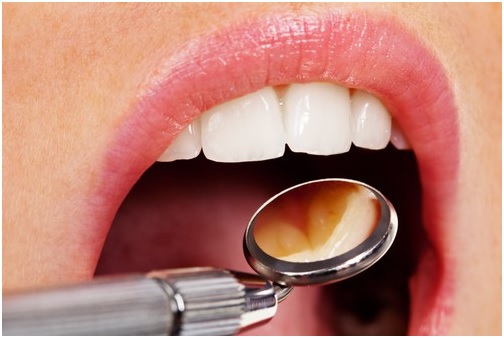The cost of a dental crown will vary depending on the type of material used, the complexity of the procedure, and where you get it done. Generally speaking, ceramic or porcelain crowns tend to cost more than metal ones. Additionally, getting your dental crown done at a private practice may be more expensive than at a public facility. However, in all cases, it is important to weigh up your options and consider factors such as quality and longevity when deciding which option best suits you.


Definition of Dental Crowns
Dental crowns are a type of dental restoration that is used to cover a damaged tooth. They are custom-made from porcelain, metal alloys, gold, or combinations of these materials and can be made to match the shape and colour of the patient’s natural teeth.
A dental crown is placed on top of an existing tooth to restore its size, shape and strength. The crown completely encases the visible portion of the tooth that lies above the gum line. It may also be used to support a bridge or denture and protect a weak tooth from breaking. For dental crown services, click the link:
https://ashforddentalcentre.com.sg/services/dental-crowns/.
The process of getting a dental crown typically starts with X-rays in order to determine if any decay has occurred in or around the affected area. If there is decay present, it will need to be removed before placing the crown. After this your dentist will prepare your remaining enamel by filing down any rough surfaces so that it can fit properly over your existing teeth structure; this process helps ensure that no discomfort occurs when biting down on food or other items after having your crown placed. Finally, impressions will then be taken in order for them to create an exact model of what they plan on creating for you through their lab technicians who specialize in making these custom pieces.
Types of Dental Crowns
Dental crowns are a type of restoration used to protect and strengthen a damaged tooth. They can also be used to improve the overall appearance of your smile. Crowns come in different shapes, sizes, materials, and finishes. Depending on your individual needs, your dentist will help you decide which type is best for you. Here is an overview of the different types of dental crowns available today:
1. Porcelain-Fused-to-Metal (PFM) Crowns: PFM crowns are made with a metal core that is surrounded by porcelain for strength and durability. Because the metal provides extra strength, PFM crowns are often recommended for back teeth that experience greater amounts of wear and tear from chewing or grinding forces. The downside to these crowns is that they can show visible dark lines at their edges due to the metal’s natural colouration when compared to other tooth materials in your mouth.
2. All-Ceramic Crowns: All-ceramic crowns are made entirely out of ceramic material such as zirconia or lithium disilicate glass-ceramic material which makes them more aesthetically pleasing than gold or PFM crowns since they closely match the colour of natural teeth enamel.
Reasons for Getting a Dental Crown
If you have a damaged tooth, a dental crown may be the best way to restore it. Dental crowns, also known as caps, are coverings placed over teeth to restore their shape and size. They are usually made from porcelain that is coloured to match your natural teeth. Crowns can protect weak or damaged teeth from further damage or decay and improve the aesthetics of your smile.
Here are some reasons why you may need a dental crown:
1. To Protect a Weak Tooth: If you have an old filling that is too large for the existing tooth structure, or if you have suffered extensive decay in a tooth, then getting a dental crown can help protect it from further damage by covering the entire surface of the weakened tooth. This prevents bacteria from entering and causing additional damage to the underlying tissue.
2. To Prevent Cracks: If your tooth has already cracked due to trauma or wear and tear, then getting a dental crown can prevent further cracking by providing extra support for your existing structure. A crown will also provide protection against future cracking as it acts like armour for your natural tooth enamel in areas where cracks could form again in the future due to chewing forces or other stresses on the area of concern.
Cost Factors of a Dental Crown
Dental crowns are one of the most common dental procedures available today. They have a wide range of applications, from restoring damaged teeth to providing cosmetic enhancements. As with any medical procedure, there are various cost factors associated with dental crowns that should be considered before undergoing the treatment.
The first and most important cost factor when it comes to a dental crown is the material used for the restoration. Porcelain or ceramic crowns are typically more expensive than gold or porcelain-fused-to-metal (PFM) crowns due to their better aesthetics and durability. The type of material used will also affect how long your new restoration will last; porcelain and ceramic restorations typically last longer than PFM and gold options. Additionally, some dentists may charge an extra fee for customizing your new restoration in order to ensure it fits properly in your mouth and looks natural among your other teeth.
The second cost factor is location; depending on where you live, prices can vary significantly due to differences in local economies and competition between dentists in the area. For example, areas with higher costs of living might have higher overall prices for dental treatments than areas with lower costs of living because there is less competition among dentists.
















